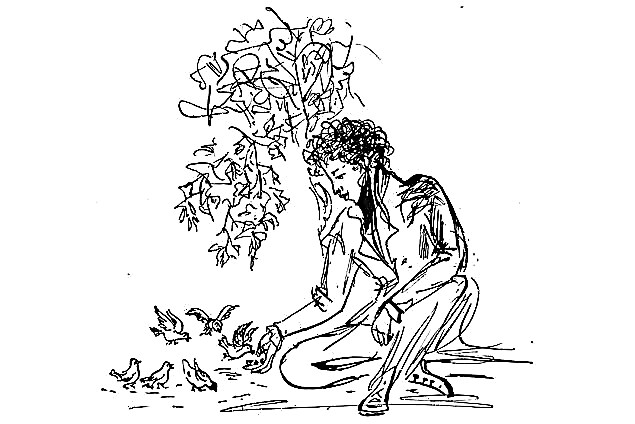(298 words) Many distinguish Lermontov as a favorite poet, who wrote more than one impressive poem. His lyrics are very diverse, and, carefully analyzing his work, you can choose one poem from each topic. The poet wrote a lot, so every reader can accept and feel his feelings expressed in verses.
Basically, Lermontov was realized within the framework of romanticism, and in this direction the theme of loneliness is rather sharply addressed. Creative natures definitely fall in love with Sail, written in 1832. Representing the landscape described in the poem, you can feel the longing, which the author speaks through the lines. The sea, the waves, the sky, and only the sail, as the only vertical in the picture, captivates finely sensitive individuals.
Of course, in Lermontov’s poetry, the topic of mutual understanding of the poet and the crowd, or rather, the lack of that same understanding, is raised. The work "No, I'm not Byron ..." reveals the common between the English poet and Lermontov himself, in the "Death of the Poet" the author stands up for Pushkin, accusing the community of destroying the poet. All these poems openly declare the poet's creative credo, and how it is necessary to penetrate other people's feelings, and therefore remain in the hearts of readers.
Lermontov really has a lot of wonderful poems. For example, in the famous work “Both Boring and Sad,” the author discusses eternal problems, which is why the poet’s philosophical lyrics deserve special attention.
However, personally, Lermontov’s inspiration doesn’t inspire me like his love poems. It would seem that this is banal, but it is still amazing how the poet, who was famous at the same time for his great talent and complex character, poured out his feelings in lyrics. His pain is transmitted in many poems, and it is noticeable how the author suffered painfully from the most beautiful feeling on earth. For myself, I singled out two favorite love poems: “I Will Not Be Humble before You,” which expresses the despair of the lyrical hero, and “The Pauper,” where the author compares his feelings with those of the poor, “asking for alms.” And in fact, and in another work, the chosen one is cruel to him, and his pain is so subtly transmitted to us through the lines of iamba.












